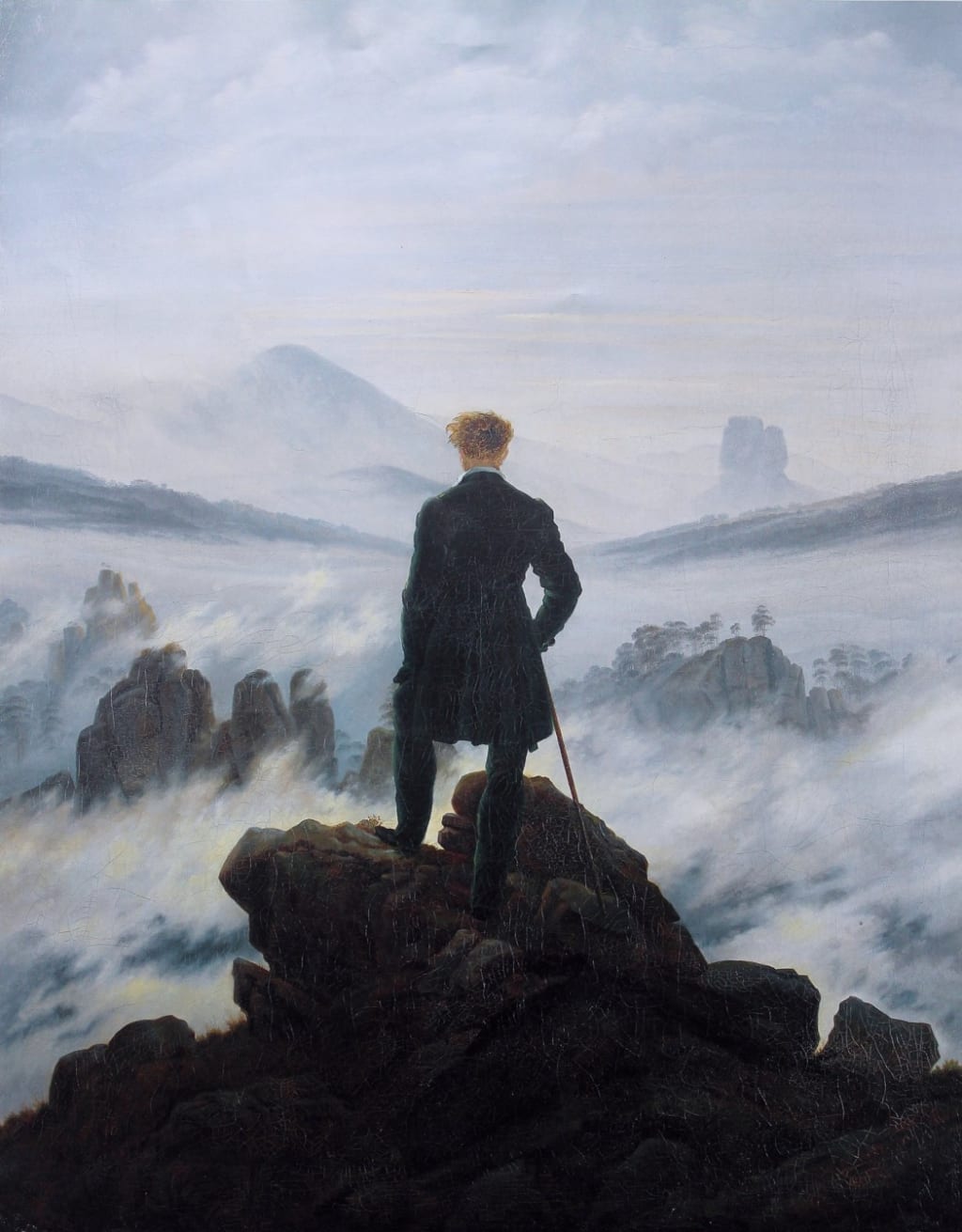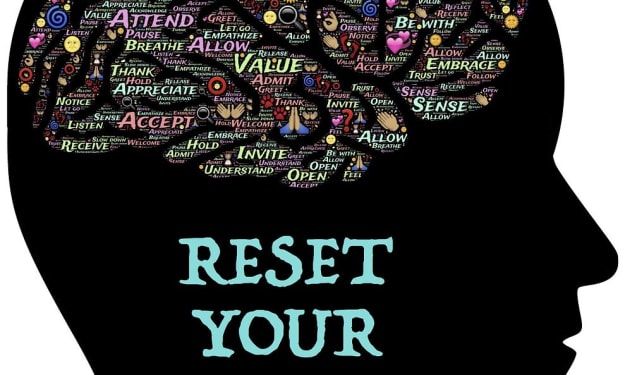
What do you imagine when you think of “the sublime”?
Nowadays, most of us would say it could be a synonym for “beautiful” or “breath-taking”. However, Dr. Siobhan Lyons doesn’t think that’s the case. I read his article on this topic in Philosophy Now (Issue 132, June/July 2019) some time ago, and I still sometimes find myself wondering about his explanation of the phenomenon.
He writes that the sublime “refers to an experience of magnificence that nearly, but not quite, invokes fear.” This can usually be found in nature when you look at the incomprehensible vastness of the world around you.
It’s also what keeps us in awe of the world and its natural magic.
Der Wanderer Über dem Nebelmeer
A perfect example is the painting Der Wanderer Über dem Nebelmeer by Caspar David Friedrich from 1817 shown above.
What Friedrich depicts is a “Rückenfigur”: a back figure that helps the observer to identify with the anonymous man in the painting, which in turn lets us experience the atmosphere of the image more vividly.
We see the dangerous cliffs, the ominous fog, the vastness of the sky which stretches on for what feels like infinity, reminding us of the Abyss — an eternal space where if you dare to step in, there is no turning back. You fall and fall and get lost in the eternal void around you. The smaller you become, the deeper you fall, the less important your existence is.
And as you’re standing near the edge of a cliff observing all this, you can’t help but be awe-struck at how powerful nature is — and how vulnerable you are. One more step separates you from death, from turning into dust, from being erased from existence.
This mixture of wonder and fear is what keeps you staring at the view as if glued to the ground.
Reaching After the Thing-in-Itself
Lyons refers to Immanuel Kant and his words in Critique of the Power of Judgement. Lyons says (p. 33):
“The sublime is never an object or a painting, say, but is our mental representation of what he calls the thing-in-itself (ding an sich), which is the name of the world as it exists beyond our experience.”
We all know that there is more to the world than meets the eye. As progressed as science is nowadays, there are still countless question marks that we can’t figure out answers to — and the more we try, the more questions we have to pose.
By experiencing the power of nature, our sense of inadequateness and inability to grasp the true meaning of things gives us a strange sense of pleasure — we’re almost there, we almost understand… but not quite.
And so we’re spinning in circles of frustration, wonder and a crooked sense of pleasure and displeasure at the same time, resulting in our feeling more grounded in our existence than ever before as we’re drowning in terrible confusion.
It’s a wild ride.
Are We Losing Our Sense of the Sublime?
However, according to Lyons (p. 33) many people say that we’re losing our sense of the sublime nowadays. Science and technology haveeradicated that experience, being able to explain many natural causes with logic and destroying nature all around us, leaving us with little to behold.
People are stuck in cities and the closest they get to wild nature is through documentaries or films. We’re turning towards space and other planets to be able to find the sublime there (pp. 34–35) — we’ve conquered nature on planet Earth, and so space takes its place.
We’re closer to leaving Earth and colonizing other planets than ever before in human history, but we haven’t quite reached that point yet, which lets us regard space with wonder and terror at the same time.
However, I agree with Lyons when he argues (p. 35 ) that the sublime is a subjective experience that always has some potential. I don’t think we’ve run out of possibilities to experience it — I think we’ve just grown too distracted.
Finding the Sublime in Daily Life Is Key
My partner is currently working on a ship crossing the Atlantic. When he was talking to his captain, the captain couldn’t believe what he heard. “So you’re a romantic,” he said. “I didn’t think those existed anymore.”
And yet they do. For other people on the ship, they’re just taking care of it, doing their job, traveling across the ocean with barely a thought of how vast the ocean is compared to them.
My boyfriend’s perspective is completely different — he can’t help but be fascinated by the strength of the waves, the water stretching on for what looks like infinity, the huge engine of the ship that works similarly to a human body with nerves, hearts, muscles.
Every day, he’s in awe. And every day, his routine doesn’t get old thanks to his ability to see past it.
Most of us don’t spend every day in the mountains overlooking forests and cliffs, but the sublime will always be there, waiting for us to find our way back to it. Its power has transferred into the small things — the sunshine dancing on your eyelids as you close your eyes, the tall buildings made by human hands and minds that could easily crush you, the flocks of birds dancing in the sky.
They are small reminders of the big universe we all live in, and they inspire so much gratitude every time I stop for a second and focus my attention on them.
People say happiness is in the little things, and this is no different. By bringing your focus to your existence in a huge, savage, and beautiful natural world, you can reach the feelings we all aspire to achieve — immense gratitude for being alive, happiness that you’re still breathing and quiet peace mixed with awe and a pinch of fear to add the bittersweetness to it.
Humans are the only beings we know of that are consciously aware of their existence and that question it daily all around the world. This questioning can drive us mad as well as euphorically passionate about finding answers we know we might never find.
It can make us suffer. But it also has the potential to make us happy and grateful for everything the world has to offer us every single day.
Reconnecting with the sublime on daily basis might just as well be how you achieve the latter.






Comments
There are no comments for this story
Be the first to respond and start the conversation.